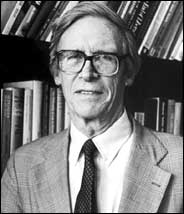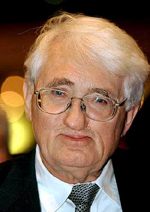PONTIFÍCIA UNIVERSIDADE CATÓLICA (PUCRS)
CURSO DE FILOSOFIA - 2009/I
PROF. DR. NYTHAMAR DE OLIVEIRA
1. O que é ética?
1.1. Há como justificar a ética através de
critérios normativos objetivos, cognitivos, mesmo que não partamos de
concepções dogmáticas, religiosas
ou realistas (por ex., de que “há fatos morais”) ?
Cognitivismo vs. Não-Cognitivismo
Modelos teleológicos, utilitaristas, deontológicos
Ética Kantiana
1.2. Não há como falar de ética sem pressupor a vida
social e política dos seres humanos: a ética é desde sempre um subconjunto da filosofia política,
um correlato (transcendental? natural?)
do "político"
Universalismo vs. Comunitarismo / Relativismo Moral / Naturalismo
Ética, Metafísica, Filosofia da Mente / Moral, Direito, Política
A Crítica de Hegel a Kant
1. O que é ética?
Aristóteles nos lembra que ethos e êthos são correlatos, filologicamente e
filosoficamente: em grego, ethos (com
epsilon) significa “costume” (como
encontraremos, mais tarde, numa “metafísica dos costumes”, Metaphysik der Sitten, de
Kant) e êthos (com êta), uma forma mais antiga (como a encontramos em
fragmentos pré-socráticos, por ex. de Heráclito),
significa “caráter”: na medida em que toda ética (êthikê) pressupõe
instituições sociais, políticas, jurídicas, através das quais são cultivados virtudes e valores
morais, a ética é correlata à política (politikê). Mesmo os utilitaristas e
contratualistas (portanto, não apenas os comunitaristas, mas até mesmo liberais e universalistas
tachados de “individualistas”) reconhecem que a ética é correlata a uma
dimensão coletiva, social (da comunidade, das tradições e instituições
sociais, políticas e econômicas). Hobbes, Locke, Mill, Rousseau, Kant, Hegel são alguns dos pensadores morais que propuseram diferentes modos de
justificar filosoficamente a moral e relacioná-la com a política e com a
dimensão social da existência humana.
Fragmento 119 de Heráclito:
ἦθος ἀνθρώπῳ δαίμων
êthos anthrôpô daimôn : o caráter próprio ao ser humano é o seu destino
Tradução de Martin Heidegger: "a habitação (o familiar) é para o homem o aberto para a presentificação do deus (o não familiar)" (Carta sobre o humanismo, trad. E.J. Stein): o habitar poeticamente a Terra desvela a verdadeira destinação do modo humano de ser e sua autocompreensão existencial, histórico-temporal; o êthos humano é uma praxis correlata ao pensamento da technê, epistêmê, theôria e poiêsis
Egoísmo moral / psicológico; utilitarismo (ato /
regras); contratualismo (moral/político); modelos deontológicos de ética;
intersubjetividade, ética do reconhecimento (Axel Honneth)
Pensadores como Maquiavel e Nietzsche não apenas negam um papel de fundamentação moral do político, mas
defendem um tipo de realismo político (como no argumento de Trasímaco na
República de Platão), Realpolitik, segundo o qual relações de poder tendem a solapar todas
as pretensões de fundamentação moral, num tipo de ceticismo moral. No século
XX, Foucault, Rawls e Habermas são alguns dos pensadores contemporâneos que retomam esses problemas, respectivamente
em Uma História da Sexualidade, Uma Teoria da Justiça e uma
teoria ético-discursiva do Agir Comunicativo.
http://www.oocities.org/nythamar/ethics.html
http://en.wikipedia.org/wiki/Ethics
Ética: Estudo filosófico da moral
Moral: conjunto de codificações de conduta humana, modo
de se conduzir em relações humanas, costumes (latim, mores)
1. Ética Geral: Teoria Moral e Ética Prática
2. Ética substantiva (teoria ética e ética aplicada)
3. Metaética
In order to understand what is at stake in contemporary debates about
abortion, euthanasia, death penalty, and other so-called "Moral
Problems" belonging to the vast field of Applied Ethics, one must
inevitably refer to Ethical Theories and how they co-relate to both Law and
Politics (for instance, in legislation, public policy making and many legal,
procedural decisions relating to the Constitution and to the public opinion). Ethical
Theories seek to justify our arguments and moral reasoning when dealing
with contemporary moral problems. Applied ethics is, therefore, a
discipline of philosophy that attempts to apply Ethical Theories to real
decision-making processes (e.g. in legal procedures and political decisions),
especially those involving moral dilemmas and world dilemmas, such as the ones
found in bioethics (abortion, euthanasia, health care, stem cell research,
cloning, and other problems in medical ethics), biotechnology (eugenics,
genetic research, food processing), legal ethics and human rights (global
ethics, global justice, public policy making, international law), environmental
ethics, computer ethics, corporate social responsibility, and business ethics.
See the Wiki entry on Applied
ethics. For more thoughts to address the broader question: What is philosophy ?
follow the link down. Keep in mind that Ethics is a branch of Philosophy which
deals with moral problems both in abstract, theoretical terms (such as in
Meta-Ethics and Normative Ethics, for instance, to define "what is
good") and in practical, concrete terms (Applied Ethics).
Dilemma: two propositions
seem to be plausible leading to a paradox or undecidable situation. COGNITIVIST vs. NONCOGNITIVIST Ethical Theories: COGNITIVIST: Ethical principles can be known and established in
objective terms Bibliografia Básica Charles Taylor,Argumentos Filosóficos. São
Paulo: Loyola, 2000. Immanuel
Kant, Fundamentação da Metafísica dos Costumes. Coleção Os Pensadores. Abril
Cultural: 1989. ---------.
Crítica da Razão Prática. Trad. Valerio Rohden. São Paulo: Martins Fontes:
2002. (Lisboa: Edições 70, 1988). ---------.
Crítica da Razão Pura.São Paulo: Abril, 1989. John
E. Hare, The moral gap: Kantian ethics, human limits and God's assistance. Oxford:
Claredon, 1996. Nythamar
Fernandes de Oliveira, Tractatus ethico-politicus: Genealogia do ethos moderno,
Coleção Filosofia Vol. 100, Porto Alegre: EDIPUCRS, 1999.
Kant: Weltphilosoph und Weltbürger
Comentário sobre a Crítica da Razão Prática (em inglês)
According to Benedict, Cultural Relativism inevitably leads to Moral Relativism.
According to Rachels, however, it is possible to subscribe to Cultural Relativism
without necessarily endorsing Moral Relativism.
Why, after all, should we be moral? The main lesson we learn from the story of
Gyges' ring: no one is so virtuous that one could resist the temptation of
being able to steal at will by the ring's power of invisibility.
See the Wiki entry on Ethical Dilemmas
Determinism: all events are determined by natural laws (for instance, physical
laws, such as the laws of gravity) or by some form of conditioning (such as
psychological, sociological or cultural conditioning).
Free Will: Human beings have the individual capacity for free choice
Nature-Nurture: what is innate (DNA, genetic features) vs. what is acquired
(socialization, cultural and psychological features acquired in human behavior)
Behaviorism: stimulus → organism → response (Pavlov's dog)
Libertarianism: Individuals are free, regardless of natural, social or other
constraints.
Soft Determinism (William James) as an alternative to Hard Determinism.
Compatibilism: one can make compatible both Free Will and Determinism either by
resorting to a Soft Determinism (e.g. James) or by resorting to a dualism (e.g.
Kant's reconciliation of Nature and Freedom).
Insofar as they are free, humans are said to be responsible for their actions.
First-order desires: To will something.
Second-order desires: To will to will something.
Only human persons (as opposed to nonhuman animals) can have volitions of the
second order.
1.VIRTUE ETHICS (TELEOLOGICAL)
2.UTILITARIAN (CONSEQUENTIALIST)
3.DEONTOLOGICAL (DUTY-ORIENTED)
NONCOGNITIVIST: Ethical principles cannot be known and are rather chosen for
different subjective reasons (by the very affirmation of subjective choices,
individual freedom, emotions or by personal preferences or subjective
expressions)
4. EXISTENTIALISM
Ernst Tugendhat. Lições sobre ética. Petrópolis: Vozes, 1997.
Georg W.F. Hegel, Princípios da Filosofia do Direito. São Paulo: Martins
Fontes, 2001.
Henry Sidgwick, The Methods of Ethics. London: Macmillan, 1874. (espanhol)
Howard Caygill, Dicionário Kant. Rio de Janeiro: Zahar, 2003.
Immanuel Kant, Grundlegung
zur Metaphysik der Sitten- Versão original em alemão
Versão em
inglês da GMS- T.K. Abbott’s translation
Versão
em inglês da Crítica da Razão Prática (1788)- T.K. Abbott’s translation
---------. God’s call: Moral realism, God’s commands and human authority. Grand
Rapids: Eerdmans, 2001.
John Rawls,Uma Teoria da Justiça.São Paulo: Martins Fontes, 1999.
---------. Lições sobre a História da Filosofia Moral.São Paulo: Martins
Fontes, 1999.
---------. Liberalismo Político. São Paulo: Ática, 2000.
---------."Aestheticism
in Nietzsche and Foucault", in Filosofia: Di< logo de Horizontes,
org. Heloísa Feltes e Urbano Zilles, Porto Alegre: EDIPUCRS, 2001, pp. 529-544.
---------. "Hegel,
Heidegger, Derrida: Desconstruindo a mitologia branca", Veritas
47/1 (2002): 81-97.
---------. "Desconstruindo
a Libertação: Teologia e Práxis", Teocomunicação 32/135 (2002):
155-178.
---------. "Moralidade,
Eticidade e a Fundamentação da Ética",Reflexão(PUCCAMP) XX/63
(1995): 95-119.
---------. "Ética e Estética na Terceira Crítica de Kant", Veritas
45/4 (2001): 312-321.
---------. "Eticidade e Religião: O Comunitarismo do Jovem Hegel",
Filosofia Política (2002).
---------. "Polis e Psyche na República de Platão",
Philosophia (1994)
Richard M. Hare, Essays in ethical theory. Oxford: Claredon, 1989.(espanhol)
---------. Sorting out ethics. Oxford: Claredon, 1997.(espanhol)
---------. A Linguagem da Moral. São Paulo: Martins Fontes, 2001.
Paul Guyer (org.), The Cambridge Companion to Kant.Cambridge University Press,
1992.
Thadeu Weber, Hegel, liberdade, Estado e história. Petrópolis: Vozes, 1993.
---------. Ética e Filosofia Política: Hegel e o Formalismo Kantiano. Porto
Alegre: Edipucrs, 1999.
Websites / Links na Internet:
Teste (quiz) sobre a Crítica da Razão Prática (em inglês)
Sociedade Kant Brasileira - Seção Regional RS
E-prints Sociedade Kant Seção Regional Campinas, SP
X. Internationaler Kant-Kongress 2005
Pesquisas Kantianas: Criticismo e Semântica
FUNDAMENTAÇÃO DA MET. dos COST.
KANT: FILOSOFIA DO DIREITO - SEMINARIO 2005/I
The Free Encyclopaedia Wikipedia
Stanford Encyclopedia of Philosophy
Descartes & Hume
HUMAN RIGHTS - DIREITOS HUMANOS
RAWLS SEMINARIO 2003/II
KANT & RAWLS SEMINARIO 2003/I
KANT e HEGEL
North American Kant Society
Kantian ethics
Pós-modernidade para otários (PostModernity for dummies)
Email: nythamar@yahoo.com







